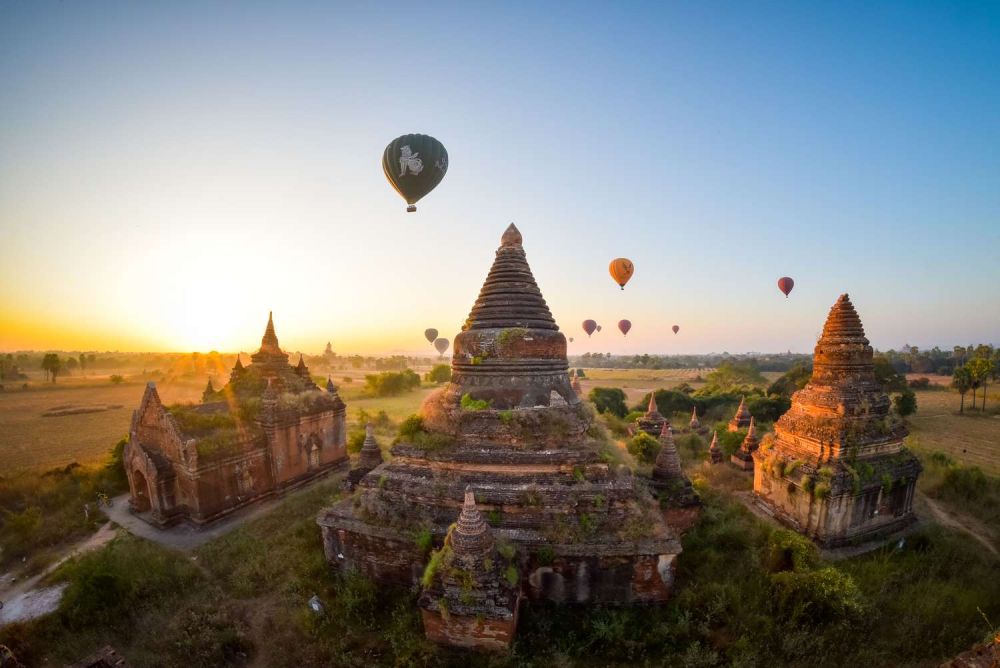

Bagan, the ancient city located in the Mandalay Region of Myanmar, has long been a crown jewel of Burmese heritage and culture. The region is renowned for its remarkable archaeological site, which spans an impressive 26 square miles and is dotted with thousands of Buddhist temples, pagodas, and stupas dating back to the 9th century. Although tourism has now become a significant industry for Bagan, its history is marked by centuries of cultural and religious activities rather than leisure travel.
The original form of tourism in Bagan could be traced back to religious pilgrimage. Buddhists from across the region would travel to Bagan to visit the sacred pagodas and temples, with the first recorded instances going as far back as the Pagan Kingdom's height between the 11th and 13th centuries. These early visitors were not tourists in the conventional sense but were deeply connected to the spiritual and cultural life of the region.
It wasn't until the mid-20th century, following Myanmar's independence from British rule, that Bagan began to emerge as a tourist destination. However, widespread international tourism would take much longer due to various political and economic factors limiting Myanmar's accessibility. The country’s government initiated policies in the 1990s aimed at boosting tourism as part of a broader plan to develop the economy. The area around Bagan was developed to include hotels and transportation infrastructure to facilitate tourist activity.
The turning point for Bagan's tourism came on July 6, 2019, when UNESCO officially inscribed the Bagan Archaeological Area and Monuments on the World Heritage list. This recognition has significantly increased Bagan's visibility and prestige on the global stage, leading to a notable rise in visitors interested in cultural and historical exploration. Tourism infrastructure has expanded accordingly, with a particular focus on sustainable practices to preserve the site's integrity.
In recent years, Bagan has become renowned for its sustainable and experiential travel opportunities. Tourism trends indicate a growing interest in authentic experiences, such as participating in meditation and mindfulness retreats at local monasteries, engaging with traditional artisans, or going on guided tours explaining the architectural and historical significance of the temples.
Luxury travel has also seen growth in Bagan, with the rise of high-end accommodations and experiences like hot air balloon rides offering panoramic sunrise views of the temple landscape. Ecotourism is on the rise as well, with initiatives emerging to protect the environment and promote the welfare of local communities alongside tourism development.
The COVID-19 pandemic deeply affected tourism worldwide, and Bagan was no exception. International travel restrictions and health concerns led to a significant decrease in visitors. As the situation improves, recovery efforts in Bagan are focused on ensuring safety and health protocols for travelers, while also diversifying tourism products to cater to the evolving preferences of post-pandemic travelers seeking more meaningful and secluded experiences.
With a rich history, a commitment to sustainability, and a vibrant cultural backdrop, Bagan's tourism industry looks to a future that honors its past while innovatively welcoming travelers from around the globe.